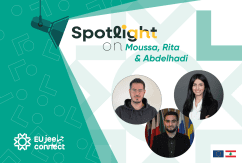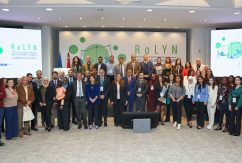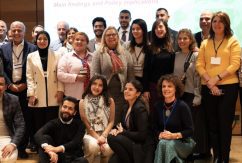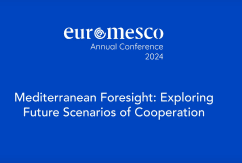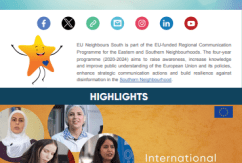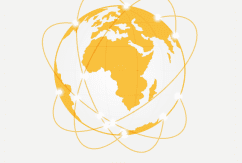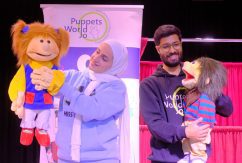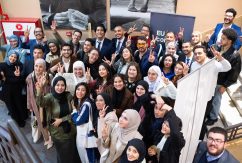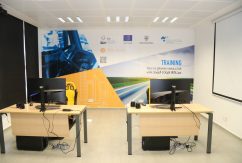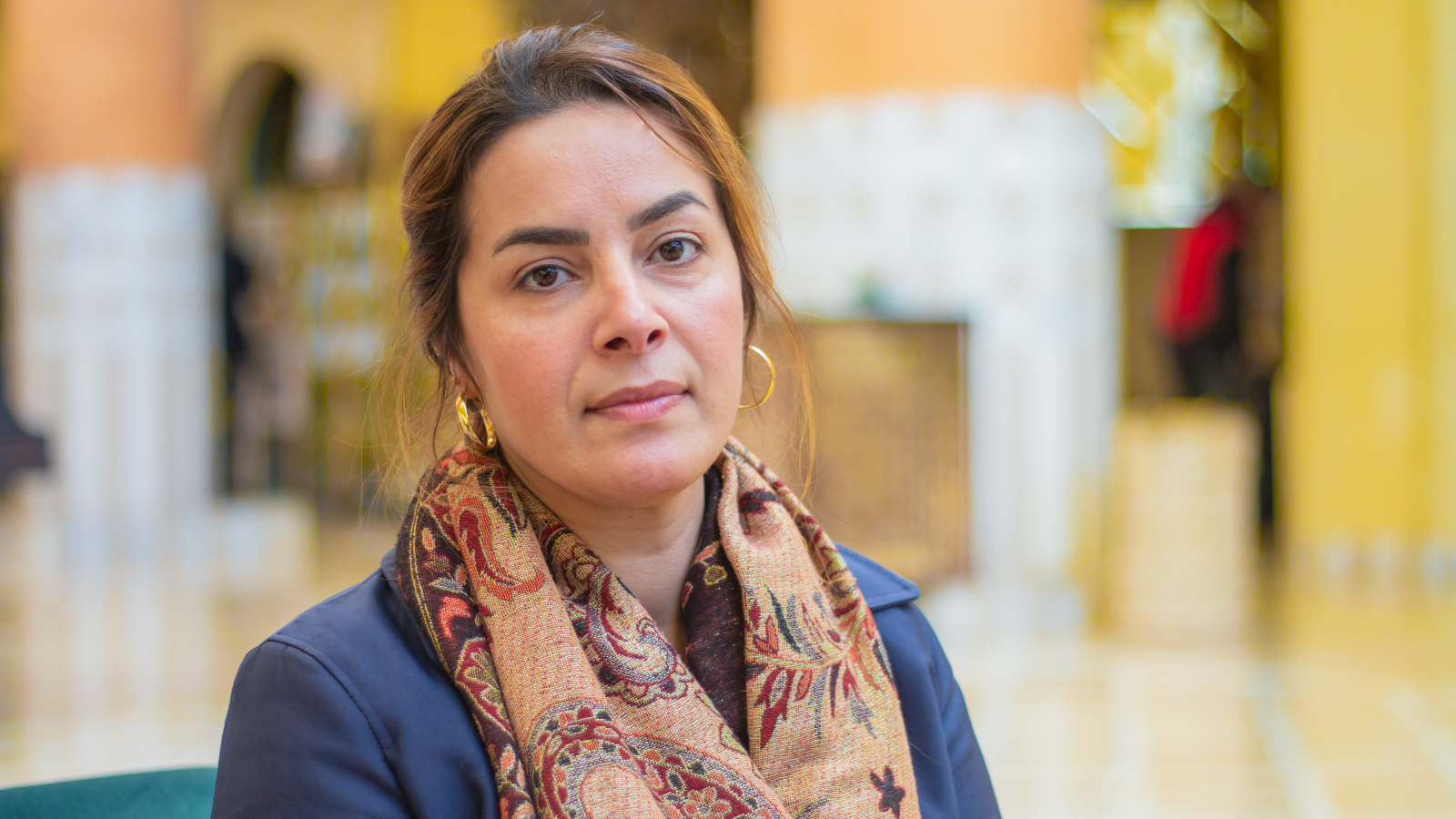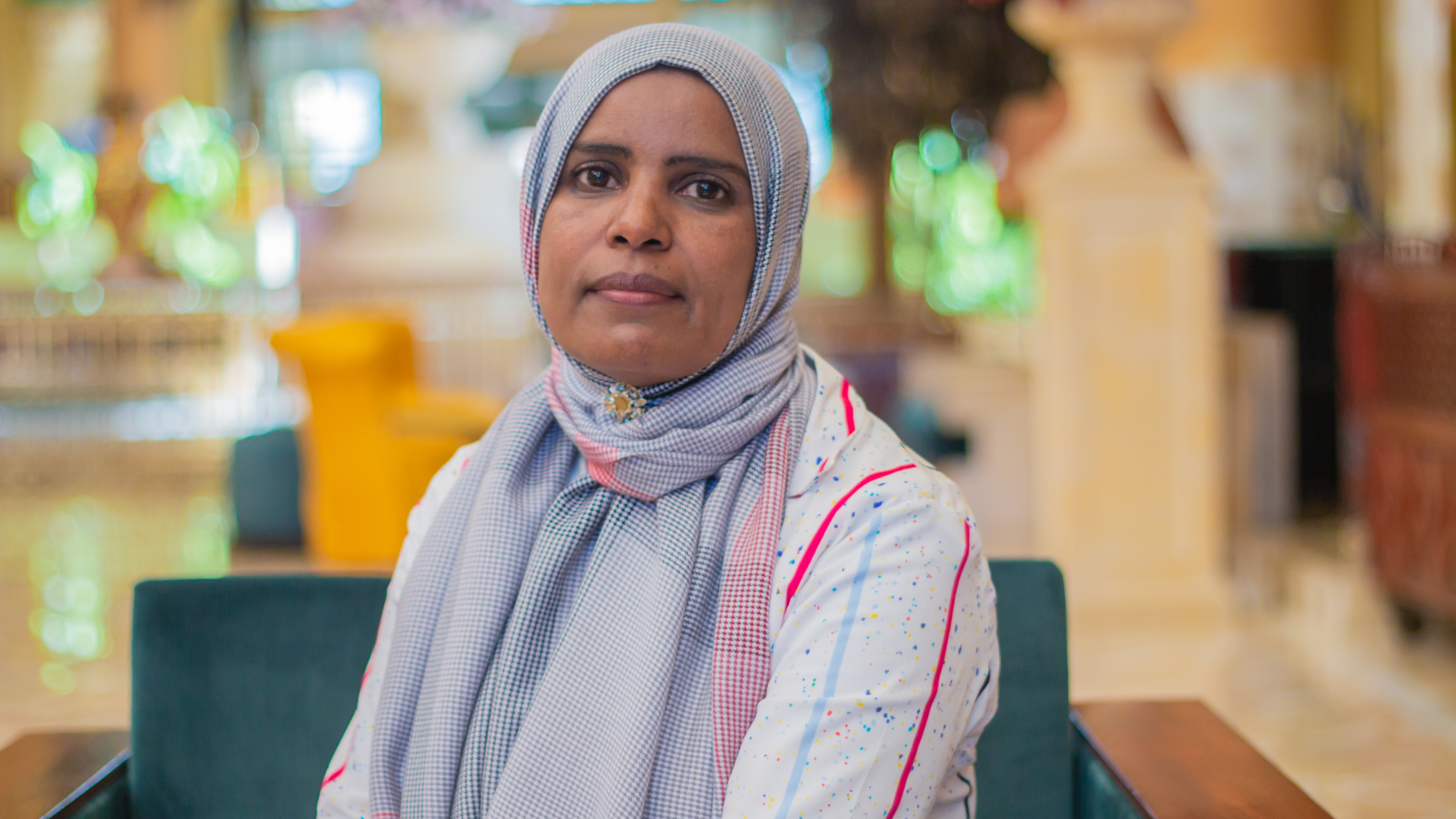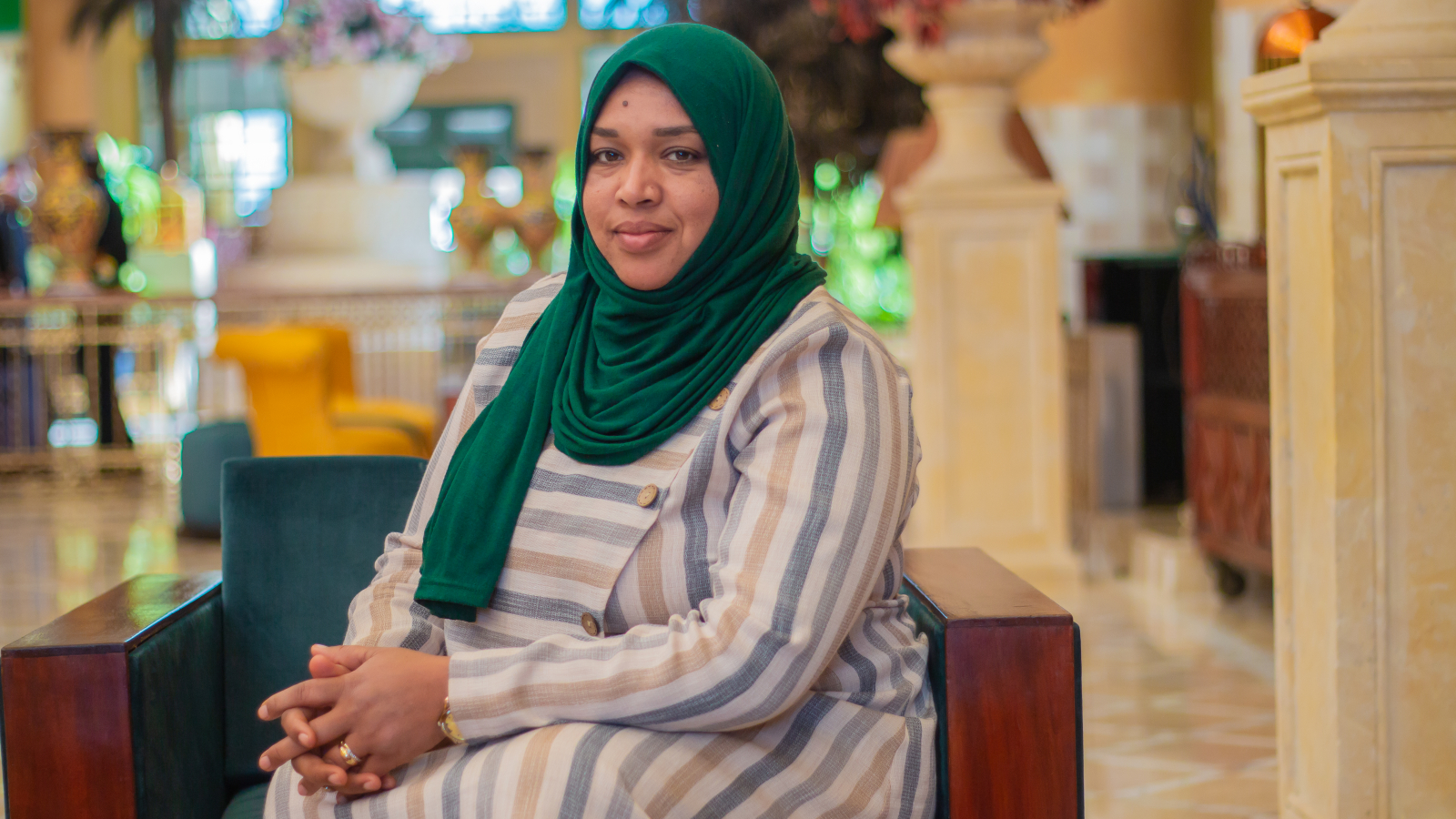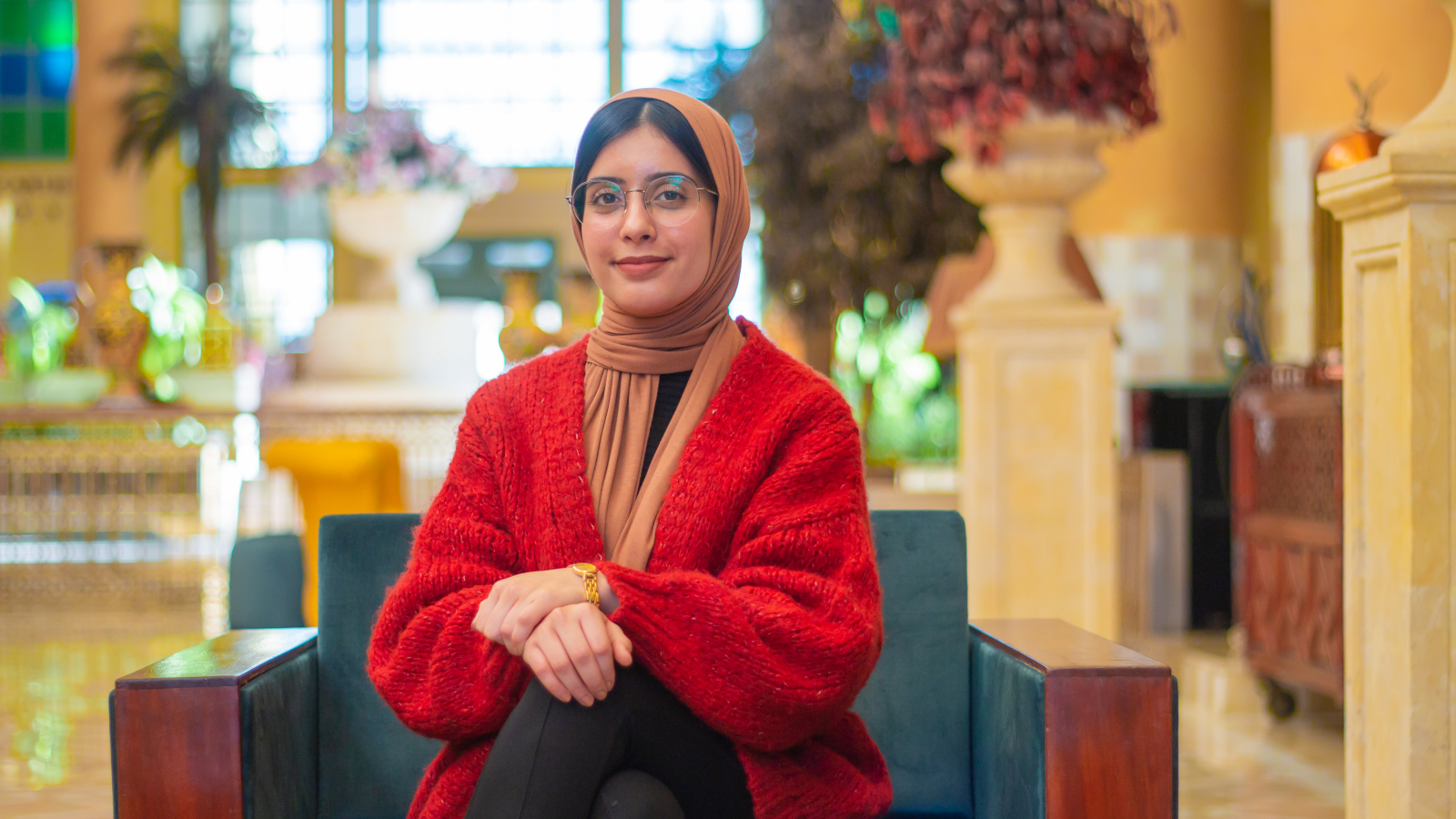Libyan Women: A portrait of those fighting for equality
These women are students, employees and teachers. They are Libyan and they are forging a path to freedom in a country fractured by war. They decided not to flee, but to band together to campaign for women’s rights, for equal citizenship with men. Paying no heed to a reluctant patriarchy and braving all obstacles, these women are working within organisations to strengthen the role of women in civil society, something still in its infancy in Libya, and to redefine boundaries.
Thanks to the EU4PSL project, financed by the European Union and initiated by Expertise France, they are able to gain training in developing skills for Libyan civil society. This project aims to support the role of young people and women in the Libyan economy and empower women via entrepreneurship support.
Ibtissam Al Qusbi
Ibtissam comes from the city of Zawia. She is 40 years old and has 4 children and a degree in Computer Science. This graduate became part of civil society in 2011 after becoming a member of the “17th of February” group for women’s and children’s rights. This voluntary commitment meant she would be interrogated several times by Gaddafi’s militia forces in March 2011. However, she turned away from this group very quickly after understanding that it relegated women to a mere secondary role. At the same time, Ibtissam felt threatened by the outbreak of armed hostilities in the country and so left, temporarily relocating to Tunisia.
In 2016, she founded the organisation “Journey to peace and development” in Tunisia. Her objective is to provide Libyan women with essential skills to fully take up their role in bringing about peace and development. “The Libyan women who started by rescuing and caring for war orphans are today eager for training and to start dedicating themselves to other civil activities such as the fight for equality”, she emphasizes. She cites the campaign “We start with 30” as an example, which aims to guarantee at least a 30% female representation on municipal councils and in management positions in other government institutions. For her, the biggest hindrance to the journey of women is a lack of confidence in their potential. Women are still wrongly seen as incapable of creating, directing or deciding. Ibtissem criticises this idea that women only exist to play a secondary role. But Ibtissem is optimistic about the future, “Mentality has started to change, albeit in a small way, thanks to the efforts of tenacious women. You can even see it in politics now where women are leading several advocacy campaigns”.
Safa Ahmad Bouzgeya
Originally from Benghazi, 34-year-old Safa is a single, voluntary project assistant for the organisation “Fab Lab Libya”, founded in 2017. A telecoms engineer, Safa was never able to work in her profession because she was a woman. “Nobody would employ a woman in a field that is supposedly reserved for men”, she says indignantly. Today, Safa works for the NRC, the Norwegian Refugee Council.
As a project manager, she provides legal consultations. Through the voluntary sector, she found a way past her frustration. “Women are much more active in civil society than men. Almost all organisations in Libya are run by women”, she explained. “Civil society is important and brings a certain balance to my life. I develop better social relationships there as I can’t in my professional life”, she affirms. Despite this, she rues the fact that there are still several factors that hamper the development of women in Libya, “Even now, a woman can’t go out by herself. A woman can’t participate in meetings because they risk coming home late. The world has changed, but the Libyan mentality has got worse”, she reveals.
Aysha Al Seddiq
Aysha is the President of the governing board of the organisation “Justice and civil duty, Morzek”. She elaborates on the reasons that led her to become fully involved in the voluntary sector. “After 2011, we saw the economy collapse. As there was no money, men refused to work for free to deliver the aid that was coming into Libya. Women volunteered to deliver the aid. So, we made a list of people who needed aid in order to get it to them. From there, we had the idea of starting up an organisation that was responsible for this”, says Aysha proudly. “It was our first experience in an organisation, before taking part in other activities such as the 2012 elections, with awareness campaigns and training 20 monitors”, she explains. “There are no specialised organisations, so we did a bit of everything”, she adds.
Talking about her career, she reveals that she is a civil engineer but that she has not worked in her field. “I am an administrative officer in a public enterprise”, she says. “It’s the only role that a woman can take up. In an office or a school, but certainly not in the field”, she says indignantly. “Libyan women suffer under chauvinistic male rules established by families or sectors of society. For example, a woman can’t go anywhere without a male, parent or spouse accompanying her”, she complains. “The war has complicated matters, but women demonstrated their ability to help and to be able to, and want to, change. She concludes by saying that, “it is now even more necessary for women to come together to campaign for the female cause”.
Mufeeda Alnasri
A member of the organisation “Justice and civil duty, Morzek”, Mufeeda works in the public sector. She talks about how she began in the voluntary sector. “I wanted to devote some of my time to helping my fellow citizens”, she says. “I run the Ryada programme for women who want to launch their own projects and be financially independent”, she explains.
For Mufeeda, it is a pleasure to support women in their first steps toward empowerment. “This organisational experience has opened up other opportunities for me. Personally, I feel more useful, more fulfilled and I have gained new skills”, she says. “Despite unfavourable conditions, Libyan women can stand out and surprise. With the end of the war, they can conquer a better place”, she insists with a big smile.
Fatima Al Naihoum
Fatima is a 22-year-old student. She talks about her experience within the “Hexa Connections” organisation, founded in 2013, that is responsible for improving the technological development, and strengthening the capabilities, of women in society. Based in Tripoli, she works to better engage women in the world of business through training and awareness campaigns. Fatima joined this organisation in 2018 as a volunteer. She also gives English lessons in schools for refugees.She wants to change the way education is delivered in Libya and her aim is to publicise new technologies throughout the education sector and to fight gender discrimination in schools. “More attention is paid to male students in schools because most teachers think that girls should stay at home when they finish their education”, she says ruefully. She says that she has changed a lot as a result of her organisational engagement. “I was able to improve my communication and engagement skills”, she explains proudly.
Although her experience in civil society has allowed her to flourish and she believes she has changed for the better, she thinks she has a long way to go still before she can truly spread her wings. Her path is full of pitfalls, as it is for all Libyan women. “Forced marriage, harassment, equality and freedom of expression are all battles that need fighting”, she says. “Things are starting to change, but there is still a lot to do. The revolution has given Libyan women a bit more freedom, but it is not guaranteed. Once the situation becomes normal again, we will need to make sure that we strengthen and consolidate the position of women within society“, concludes Fatima hopefully.
This story is produced in collaboration with the EU Delegation to Libya and Expertise France.
